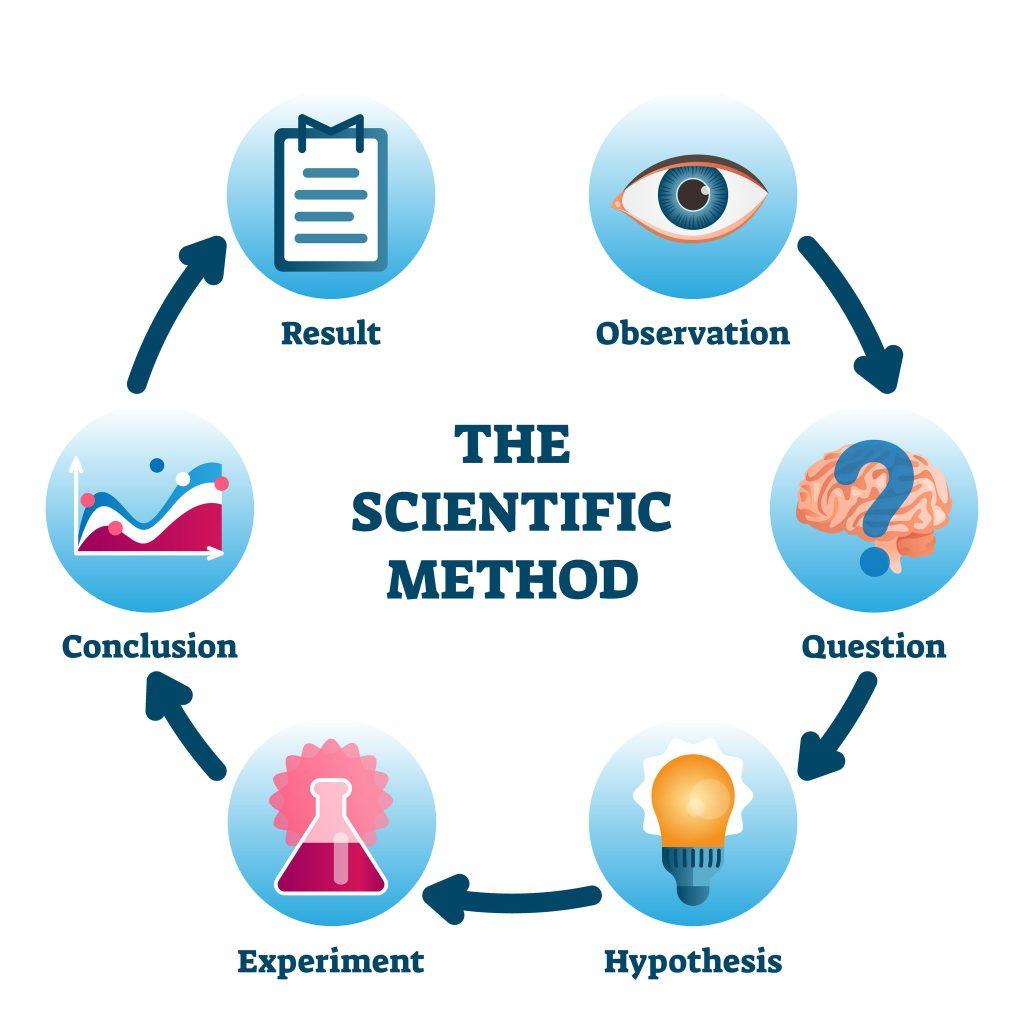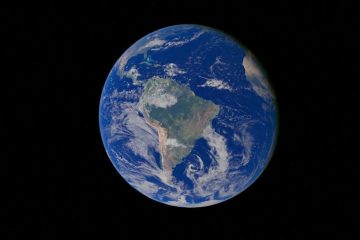In the realm of ecological debate, few topics stir as much intrigue and contention as the Gaia Hypothesis. This intriguing theory, proposed by James Lovelock in the 1970s, suggests that the Earth operates as a single, self-regulating organism. While some view this concept as a visionary ode to the interconnectedness of all life, others raise substantial critiques regarding its scientific validity and implications. Join us on a journey through the Gaia Hypothesis controversy, where the lines between science, philosophy, and environmentalism blur, inviting us to ponder the very essence of our planet’s intricate web of existence.
Table of Contents
- Exploring the Origins of Gaia Hypothesis Controversy
- Unveiling Key Arguments from Both Sides
- Delving into Scientific Criticisms and Responses
- Navigating Ways to Foster Constructive Dialogues
- Q&A
- In Summary

Exploring the Origins of Gaia Hypothesis Controversy
The Gaia hypothesis, proposed by James Lovelock in the 1970s, suggests that the Earth functions as a self-regulating organism, maintaining conditions conducive to life. This idea sparked a controversial discussion within the scientific community, with some embracing it as a groundbreaking concept and others questioning its validity and implications. As the hypothesis implies a level of interconnectedness and symbiosis between Earth and its living organisms, it challenges traditional views on the planet’s dynamics and sustainability.
Critics of the Gaia hypothesis argue that attributing Earth-like qualities to a planetary system may oversimplify the complexities of environmental interactions and natural processes. They raise concerns about the anthropomorphization of Earth and the potential risks of relying on such a hypothesis for guiding ecological policies and practices. Despite the controversy surrounding the Gaia hypothesis, its enduring legacy lies in prompting valuable discussions about the intricate relationships between living beings and their environment, inviting further exploration and reflection on humanity’s role in shaping the planet’s future.
Unveiling Key Arguments from Both Sides
In the realm of environmental science, the Gaia Hypothesis stirs up a debate that continues to captivate researchers and theorists alike. Advocates of this hypothesis propose that the Earth functions as a complex, self-regulating organism, maintaining conditions necessary for life to flourish. On the contrary, skeptics argue that attributing such characteristics to the planet anthropomorphizes it beyond scientific relevance.
Arguments in Favor of the Gaia Hypothesis:
- Emphasizes interconnectedness of Earth’s systems.
- Suggests a holistic approach to environmental conservation.
- Sparks discussions on the role of life in shaping the planet’s processes.
Arguments Against the Gaia Hypothesis:
- Risks oversimplifying complex planetary dynamics.
- Challenges the traditional understanding of Earth as an inanimate object.
- Raises questions on the scientific rigor and testability of the hypothesis.

Delving into Scientific Criticisms and Responses
In the realm of scientific discourse, the Gaia hypothesis stands as a beacon of controversy, inviting a myriad of criticisms and robust responses from scholars across disciplines. One of the primary contentions surrounding this hypothesis lies in its attribution of Earth as a self-regulating organism, challenging traditional scientific paradigms.
Critics argue that the Gaia hypothesis blurs the line between scientific inquiry and metaphysical conjecture, posing a challenge to the empirical foundations of modern biology and ecology. However, proponents counter these claims by highlighting the hypothesis’s potential to foster interdisciplinary dialogue and spark innovative research avenues. Through a critical lens, the debates surrounding the Gaia hypothesis unveil the complexities of understanding Earth as a dynamic, interconnected system, urging scientists to reevaluate their perspectives on planetary processes.
| Key Points | Counterarguments |
|---|---|
| Interconnectedness: Gaia hypothesis emphasizes the interconnected nature of Earth’s systems. | Scientific Rigor: Critics question the scientific rigor behind the hypothesis. |
| Systems Thinking: Promotes systems thinking in ecological studies. | Metaphysical Concerns: Critics express concerns about the introduction of metaphysical concepts into scientific discourse. |

Navigating Ways to Foster Constructive Dialogues
In the exploration of the Gaia hypothesis controversy, it becomes evident that differing perspectives can spark enriching discussions. Embracing diverse viewpoints opens the door to a deeper understanding of this intricate ecological theory. Engaging in constructive dialogues allows for the exchange of knowledge and promotes critical thinking among individuals passionate about environmental issues.
Encouraging active listening and respecting varying opinions are essential elements in nurturing fruitful conversations regarding the Gaia hypothesis. By fostering an environment where ideas can be shared openly and where disagreements are approached with curiosity rather than hostility, we pave the way for collaborative learning experiences. Through respectful exchanges, we can uncover new insights and perspectives that contribute to our collective understanding of the Earth and its interconnected systems.
Q&A
Q: What is the Gaia Hypothesis?
A: The Gaia Hypothesis, proposed by scientist James Lovelock in the 1970s, suggests that the Earth functions as a self-regulating system where living organisms interact with their inorganic surroundings to maintain conditions necessary for life.
Q: What is the controversy surrounding the Gaia Hypothesis?
A: The main controversy surrounding the Gaia Hypothesis lies in the idea of whether the Earth can be considered a single, self-regulating organism. Critics argue that attributing Earth with characteristics of a living organism is too anthropomorphic and overlooks the complexity of the planet’s systems.
Q: How does the Gaia Hypothesis impact environmental science?
A: While the Gaia Hypothesis has sparked debates among scientists, it has also influenced environmental science by emphasizing the interconnectedness of all living and non-living components of the Earth. By recognizing these intricate relationships, researchers can better understand and address environmental issues.
Q: What evidence supports the Gaia Hypothesis?
A: Proponents of the Gaia Hypothesis point to various examples in nature where living organisms have contributed to stabilizing environmental conditions, such as the regulation of oxygen and carbon dioxide levels in the atmosphere by plants and oceans.
Q: How has the Gaia Hypothesis evolved over time?
A: Since its inception, the Gaia Hypothesis has evolved to incorporate new scientific knowledge and perspectives. While some aspects of the hypothesis remain contentious, ongoing research continues to explore the interconnectedness of Earth’s systems in shaping the planet’s environment.
In Summary
As we navigate the intricate web of scientific debates and philosophical ponderings surrounding the Gaia hypothesis controversy, one thing becomes clear: the beauty of intellectual discourse lies in its ability to challenge our assumptions, broaden our perspectives, and fuel our curiosity. Whether you find yourself leaning towards the traditional mechanistic view of Earth or embracing the interconnectedness proposed by Gaia theory, one cannot deny the allure of exploring the mysterious workings of our planet. Let us continue to explore, question, and seek understanding, for it is in the pursuit of knowledge that we truly thrive.




0 Comments